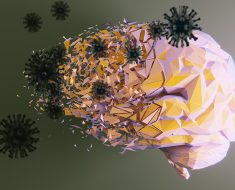A little over a month ago, I quit most technology. I had grown sick of the way I couldn’t resist the sudden burst of light as my phone received a notification, the allure of the vibration in my pocket, or the way my mood changed according to the frequency of such events.
Victoria has banned mobile phones in government high schools and the federal government wants others to follow suit.Credit:Shutterstock
We may not like to admit it, but social media and modern technology are truly addictive. The good feeling when someone “likes” your Facebook post or Instagram photo is the release of dopamine, the reward chemical in the brain. It’s released when we achieve something we’ve been working towards or experience something we enjoy, like good food or watching a thrilling conclusion to a TV program. That dopamine hit makes us want more, the same way someone suffering from an addiction – to drugs, cigarettes or alcohol – always needs more.
But in some ways the “like” on your social media is worse than the hit you get from taking a drag on your cigarette. Research going back to the 1970s has shown that when a person doesn’t know when the release of dopamine is coming, the hit is far more addictive than the hit you get when you know it is coming.
Because of the apprehension that comes when you post something online and don’t know how it will be received, the release of dopamine with every “like” is all the more addictive.
Billion-dollar digital companies such as Facebook make their money by hijacking the release of dopamine in our brains, abusing our human need for approval, and – in the words of Facebook’s founding president Sean Parker – “consum[ing] as much of [our] time and conscious attention as possible”. In the words of Bill Maher from HBO: “Philip Morris just wanted your lungs; the App Store wants your soul.”
This all sounds very dramatic, but American psychologist and researcher Jean Twenge has spent 25 years studying behaviour change across generations, dating back to the 1930s. Typically the shifts in behaviours and emotional states of teenagers have undergone slow changes across generations.
However, she reports that the shift she has witnessed from 2012 has been profound; the “gentle slopes of the line graphs became steep mountains and sheer cliffs”. This corresponds to when the proportion of Americans who owned a smartphone exceeded 50 per cent.
Australian culture is not much different from the US when it comes to digital addiction. We are in the midst of our worst mental health crisis. Suicide is the leading cause of death in Australians aged 15 to 44, and the rates of depression and anxiety are sky-high. Is this all a result of technology and social media? Probably not. Is it a major contributing factor? Almost certainly.
So in the midst of this research, and inspired by Digital Minimalism, I took the plunge and committed to remove the rest of these “optional” technologies from my daily habits. My technology use now consists of checking and responding to email and texts, once or twice per day. Email is important in the research I am doing, while I send texts solely for the purpose of organising a face-to-face catch-up with friends.
In addition to Facebook, Instagram and Snapchat – which got the chop a year ago – gone are Netflix, YouTube, Reddit and Spotify. My iPhone screen time tracking has fallen off a cliff – from two or three hours a day to about 10 minutes a day in total.
YouTube CEO Susan Wojicki speaks during the introduction of YouTube TV in Los Angeles in 2017.Credit:AP
A not uncommon refrain from friends and acquaintances has been: “What if you miss out on something?” I prefer to reframe that question: I think about what I have gained. Nights no longer slip away at the hands of the “next episode” button of Netflix; I don’t spend hours mindlessly browsing Reddit or getting lost in the rabbitholes of watching video after video on YouTube.
I now have about three hours extra a day to spend on things I actually value, with plenty of time to pursue my hobbies of guitar-playing and rock climbing. I have time to read two to three books a week, on top of my busy honours year schedule and a daily commute of more than two hours a day.
I am catching up with friends more often, which is a far more valuable connection than sending occasional messages on Facebook. My focus and concentration have improved in just a few short weeks, meaning I get more work done every day and I feel noticeably more relaxed. Over the course of a year, two hours per day is an extra month with which to pursue things that give me a greater sense of fulfilment and happiness than any number of “likes” ever could.
Michael Tanner is in his fifth year of his Bachelor of Medical Science/Doctor of Medicine degree at Monash University.
Source: Read Full Article







